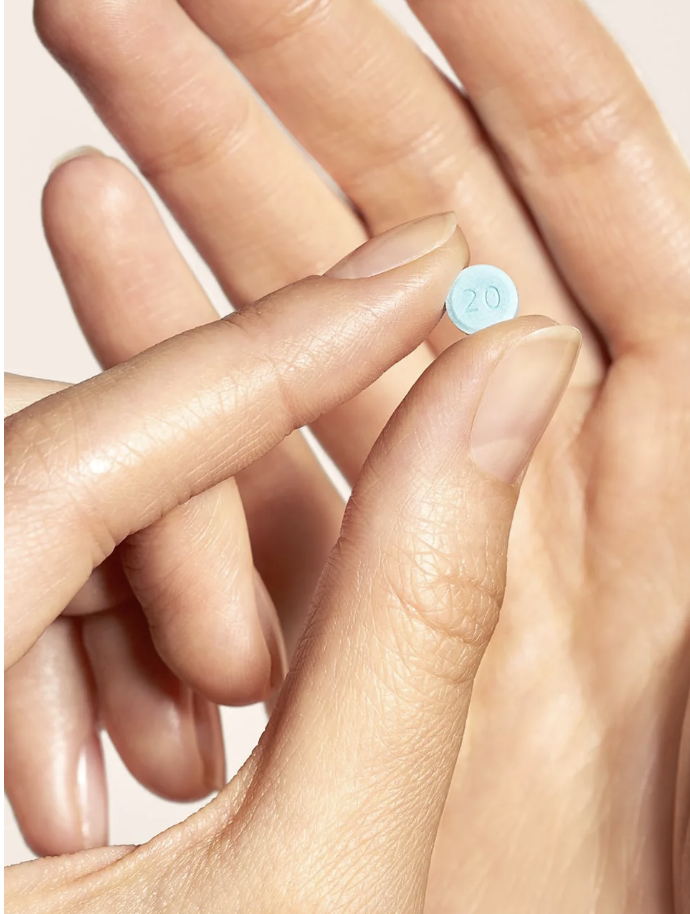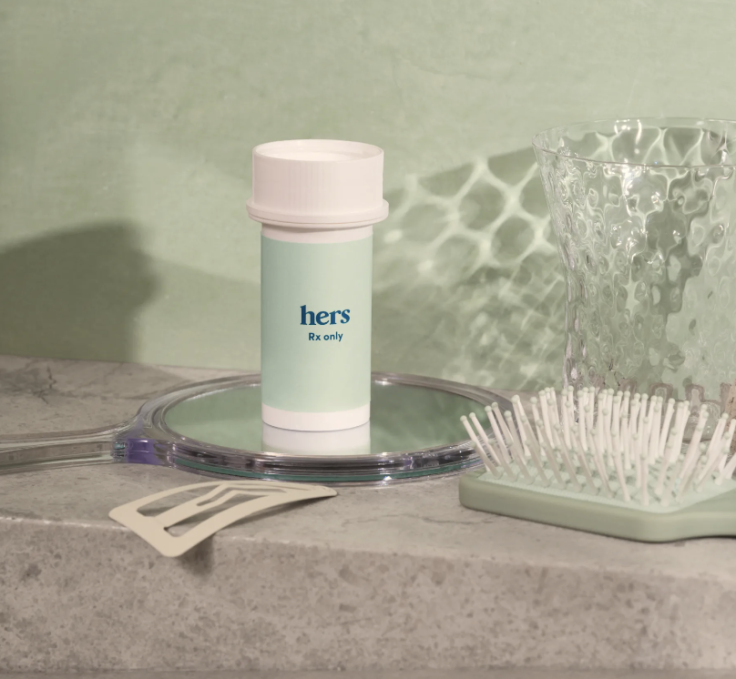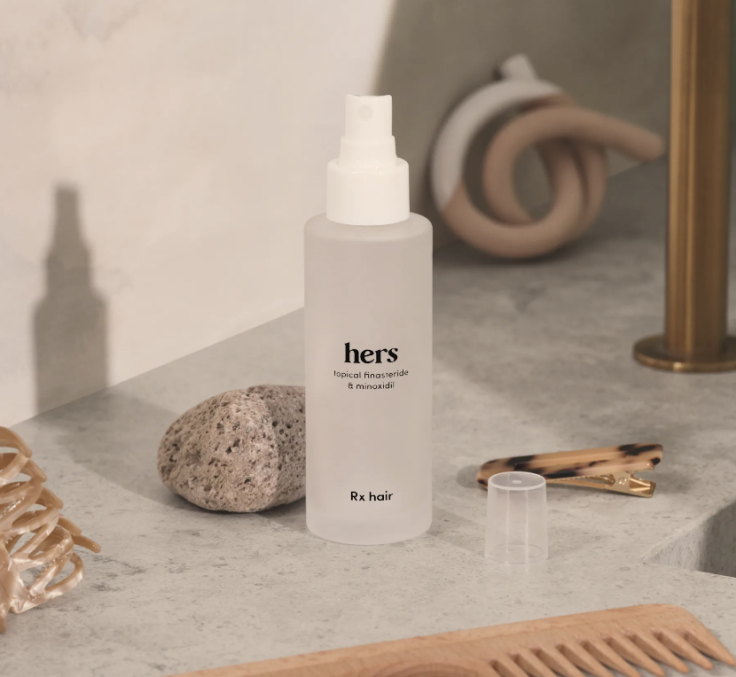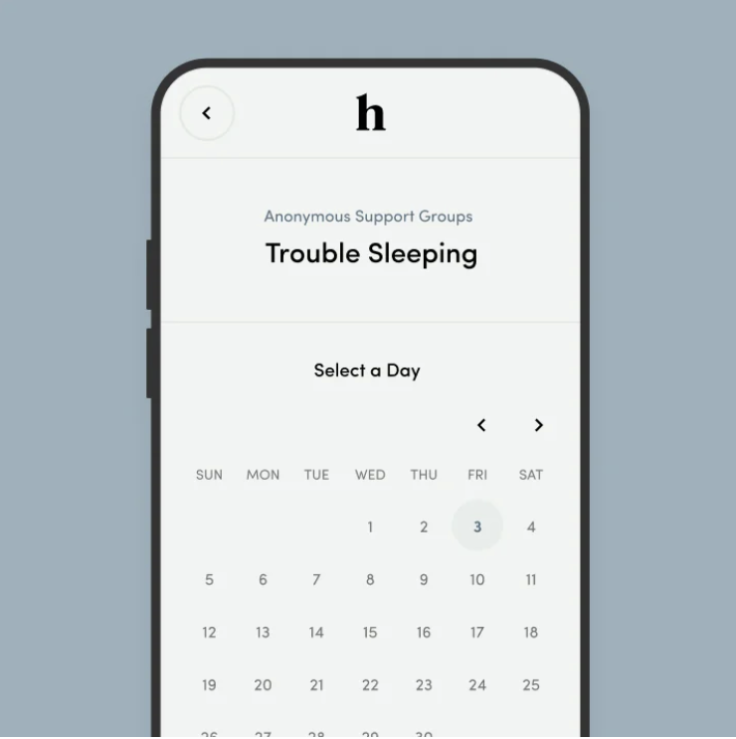Anxiety and Depression: What is the Difference and How Can You Treat Them?

Anxiety and depression are two of the most common mental health disorders. According to the World Health Organization (WHO), nearly one billion people suffer from mental health disorders around the world. In the first year of the COVID-19 pandemic, the prevalence rate of anxiety and depression increased by a staggering 25 percent.
Unfortunately, the lack of appropriate mental health services remains a major concern. People who struggle with mental health disorders also face stigma and discrimination, which only worsens their condition, making it more difficult to recover, and discourages them from seeking professional help.
Mental health is still a taboo in society. That’s why it is important to raise awareness about it. The first step in informing people about mental health is understanding how anxiety and depression differ.
Start nurturing your mental health at Hims and Hers.
Difference Between Anxiety and Depression
It is normal to feel drained, depressed, or anxious at some point or during your most stressful days. But if you experience any of those from time to time to the point where it interferes with your overall well-being, you might be suffering from a mental health disorder. Anxiety and depression are two different conditions. However, you can have both at the same time.

Anxiety is an extreme and persistent feeling of fear, worry, and tension that can’t be controlled. You can often feel it when making a decision, socializing with people, dealing with tough challenges, or even on normal days without a particular reason. When it worsens and lasts longer, it might lead to an anxiety disorder. There are several types of anxiety disorders:
- Generalized anxiety disorder
- Panic disorder
- Social anxiety disorder
- Separation anxiety disorder
- Agoraphobia
- Selective mutism
- Specific phobias
- Medication-induced anxiety disorder
Meanwhile, depression, also known as major depressive disorder, is a common and serious mental health disorder with an estimated 3.8 percent of the population affected. It causes constant and intense sadness, hopelessness, and loss of interest in daily activities that negatively affect your ability to function. There are also several types of depression:
- Major depressive disorder or clinical depression
- Bipolar depression
- Persistent depressive disorder
- Bipolar disorder
- Postpartum depression
- Premenstrual dysphoric disorder
- Seasonal affective disorder
- Psychotic depression
- Atypical depression
Anxiety and Depression: Symptoms, Causes, and Effects
Anyone can suffer from anxiety and depression regardless of age, lifestyle, and medical history. Since it is difficult to recognize if an individual is experiencing anxiety and depression, understanding their symptoms, causes, and effects will help people become more informed about mental health disorders. Leaving it untreated will only worsen their condition.
Although the cause of anxiety is unknown, among the factors that trigger it are the following:
- Inherited traits
- Traumatic events
- Brain chemistry
- Stress
- Environmental stressors
- Withdrawal from illicit substances
- Health issues (heart disease, thyroid problems, diabetes, respiratory disorders, or chronic pain)
The common signs and symptoms of anxiety include:
- Uncontrollable feelings of worry, restlessness, and fear
- Being unable to remain calm
- Inability to concentrate
- Increased irritability
- Sleep problems
- Palpitations
- Shortness of breath
- Dry mouth
- Numbness or tingling
- Nausea
- Dizziness
Similar to anxiety, the cause of depression is not fully known as well. But the factors that may be involved are:
- Biological differences
- Hormones
- Genetic features
- Certain personality traits
- Brain chemistry
- Environmental stressors
- Traumatic events
- Chronic illness (Cancer, stroke, or heart disease)
The common signs and symptoms of depression are the following:
- Intense feelings of sadness, emptiness, and hopelessness
- Lack of interest in hobbies and daily activities
- Outbursts, irritability, or frustration, even over small matters
- Sleep problems such as insomnia and hypersomnia
- Poor appetite or overeating
- Low self-esteem
- Trouble in concentrating and making decisions
- Recurrent thoughts of death or suicide or an attempt at suicide
Anxiety and depression may affect your performance at work or school, daily routine, interests or hobbies, the way you think and act, relationships with people, and overall well-being, which can worsen when not monitored or treated.
Anxiety and Depression: How Are They Connected to Hair Loss?
Aside from the aforementioned symptoms and possible causes, anxiety and depression can also cause unexplainable habits and physical effects that are usually overlooked like hair loss. Stress has a huge impact on hair loss that coexists with depression and anxiety disorders.

Anxiety can cause severe stress that can affect the growth of your hair. In worse conditions, it can cause trichotillomania or also known as hair-pulling. It is under the obsessive-compulsive spectrum, which irresistibly urges to pull out hair from the scalp, eyebrows, or other areas of the body when stressed, frustrated, or agitated.
On the other hand, the symptoms of depression such as low self-esteem and lack of confidence often result in hair loss. An unpredictable hair loss called alopecia is a chronic dermatological disorder where the immune system attacks the hair follicles, causing hair loss. Those suffering from alopecia have a higher chance of developing anxiety and depression.
Anxiety and Depression: Treatment
There’s no specific treatment or medicine to cure anxiety and depression. The effective way to treat them, including other mental health disorders, is through psychotherapy. In that way, you will understand your condition clearly, as well as your moods, feelings, thoughts, and behaviors. You will also learn to manage the symptoms, overcome the triggers, and receive proper mental care from a psychologist or psychiatrist.
The common type of psychotherapy used for depression and anxiety disorders is cognitive-behavioral therapy (CBT). It teaches you different ways of thinking and behaving to guide you in responding and reacting to situations or things that make you feel anxious and dreadful. CBT focuses on getting you to confront your fears so that you can do the things you're scared of or worried about.

Several medications might also work to help relieve symptoms such as antidepressants and benzodiazepines. Keep in mind to only take medications prescribed by your doctor to ensure they will efficiently work for you, especially if you have an underlying health condition, as they have side effects.
What’s the Solution to Hair Loss?
Hers provides reliable, accessible, and clinically-proven hair loss treatments to stop hair loss and regrow hair—mostly for women.

Oral Spironolactone is a once-a-day pill that slows down the production of androgens that can weaken follicles and increase shedding. It is suitable for women between 18 to 43 years old who have not yet gone through menopause as it treats premenopausal hair loss at a hormonal level.

For more convenient use, the Topical Finasteride and Minoxidil Spray delivers two doctor-recommended hair loss treatments in a fast-drying and fine-mist prescription spray. It is recommended for women above 44 years old. Finasteride prevents more hair from falling out and stops excessive shedding. While Minoxidil promotes new hair growth by reversing the shrinkage of follicles.
Severe and persistent hair loss is usually associated with mental health disorders because it causes the hair not to grow, grow slowly, or shed. Hair loss is not permanent, and it doesn’t always lead to mental health disorders. However, it would be best to prevent it or find a solution as early as possible.
Accessible Online Therapy Session
Due to stigma and discrimination, many people still feel hesitant and uncomfortable seeking professional help—not to mention that mental health services remain inaccessible for some. Hers also offers online therapy, anonymous support groups, and anxiety and depression medications beneficial for mental health.
Everything is done privately and online, so you don’t have to get too anxious or pressured about going to the hospital if you’re not comfortable talking to a professional face to face.

For the online session, you just need to confide your feelings or condition, select a licensed therapist, then book an online therapy session. You can book live video sessions with your therapist when needed, get confidential and secure communication, track your progress, and switch your therapist anytime.
If you prefer to remain anonymous, the anonymous support groups are open to everyone for free. All you have to do is reserve a session, submit your questions, and learn insightful strategies during the discussion with a therapist. You can hear stories from different people who might have the same struggles as yours and gain more knowledge about mental health.

You can also get psychiatric mental health care in just a few clicks. Find the right medication for you by taking an online consultation—no video or in-person sessions. You just need to answer a few questions, wait for a mental health provider to review your responses, and get your prescribed medication delivered to your doorstep.
The earlier you seek professional help, the better, to prevent your condition from worsening. Even if you’re not experiencing any mental health disorders, you must still consider getting therapy to take care of your mental health. Start nurturing your mental health at Hers.



























